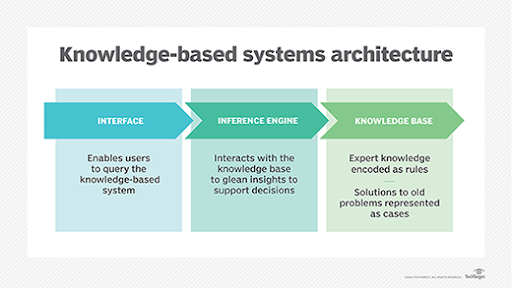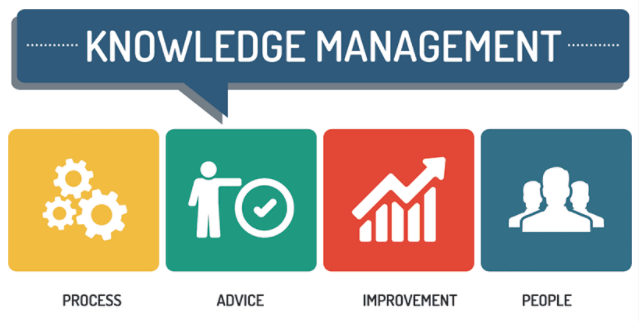Working environments are not the same from a few years ago, and you can see that by analyzing the new job positions that are now essential for every company.
One of those roles is knowledge management. However, knowledge managers are not as popular as other workers, so many don’t know what they do. You could try to guess what they do by analyzing the name of the job, but it’s still something complex to do.
Although many companies don’t have knowledge manager jobs available yet, this job position is becoming more important each day due to how simple it makes things for both employers and workers. Experts think almost all companies are going to have knowledge managers in the future.
We are here to help you understand everything you need to know becoming a knowledge manager or hiring one. Nonetheless, remember that what knowledge managers do can change to adapt to what a company does, so hire the type of knowledge manager that best suits your business.
What is a Knowledge Manager?
As the name suggests, knowledge managers are the ones who manage and distribute all the knowledge in a company. The first thing you need to know is what managing knowledge is.
Everyone in a company needs to know certain things before doing their jobs. If you, for example, are starting as an office worker in a company, you need to learn how the company works, who’s in charge, how it handles teamwork, and the resources you have available for you. Not knowing that can lead you to do things wrong.
Knowledge managers don’t teach you that information but make educational resources easy to get by you. Therefore, knowledge managers are meant to handle information and the way in which that information can get to you. The communication channel they prefer to use depends on them, though.
In essence, the reason why knowledge management includes all of that is that these people tend to work in the center of the company’s workforce. People can’t work without information, and that applies to everyone in a company. Knowledge managers tend to work with all the employees in the company’s payroll.
The concept of knowledge management is directly related to knowledge bases, and they, as their name suggests, represent databases for people working in a company.
Workers can access these databases and get everything they want from them. These databases are handled by knowledge managers. Each knowledge base has its app, and managers use the app’s features to make everything easier for other employees.

What Does a Knowledge Manager Do?
Knowing what a job position represents helps you understand what that person does in a nutshell, and knowledge managers are not an exception for that. The problem with this job position is that it includes many things, so employers and people looking forward to becoming knowledge managers need to know them all.
As we mentioned before, knowledge managers are the ones who make communication channels and educational resources available for you. They can do that in many ways. The first thing they need is to find where that information is and update it.

Some companies have all the information workers need, but it’s only available for some people, and many workers don’t even know that information exists. In that case, knowledge managers need to transfer that information to a channel all employees know of and can easily access whenever they need it.
Unfortunately, many companies have outdated information, so even if workers can access it, it’s all useless for them. When that happens, knowledge managers have to update the information and simplify it.
People working in knowledge management often use knowledge management software or a base of knowledge to do that.
Knowledge bases work as repositories of information all workers can access. That knowledge management software includes some of the most frequently asked questions workers of that company and basics of how the business works. The best thing about a base of knowledge is knowledge managers can modify it and update it any time they need to.
People in search of knowledge management jobs also need to know the responsibilities these workers have. As we mentioned before, knowledge managers work in the center of workforces, so they have to know everyone in a company and listen to their needs.
You can’t know the communication and information problems in a company if you don’t know what employees are struggling with. Therefore, helping them makes your job easier too. Helping them doesn’t mean teaching the information but instead making it easier for them to learn it.
Knowledge managers are neither an archivist nor a librarian or walking encyclopedias. If you were hired to work in knowledge management and only organize books or office documents, your boss most likely doesn’t know what knowledge managers do at all.
These workers are meant to manage information, and thanks to that, learn many things about companies, but they don’t need to know everything about the business they work for. Other employees can sometimes ask knowledge managers for information, but it’s best if they ask them where to find that information.
People doing knowledge management jobs are not advisors, either. You can let them know your concerns if those concerns are related to what they do and if they are solvable by them. Some workers can even pitch ideas to these managers and start projects with them. Knowledge managers often work on several projects to improve information management.
What Does a Knowledge Manager Contribute to the Organization?
As we mentioned before, not many companies have knowledge managers working there, but these workers can benefit both big businesses and startups in many ways. The first one of them is improving employee productivity.
Updating information and giving everyone access to it gives them more resources in the long run, which makes them work more comfortably.
Updating and boosting information can even help people improve their working skills. The ideal thing inside a company is to improve and get better positions in the future. Doing that is difficult if the information you have is outdated. Knowledge managers can help everyone in a company work better, even if it’s indirectly.
Many people refer to knowledge management as capitalizing on knowledge, and that’s an excellent way to see it. Not only when talking about businesses, but also in your everyday life, knowledge most times makes the difference between something good and something bad.
Following that description, improving the information and knowledge flow in a place would make things improve in the short, mid, and long term. That’s what knowledge managers do, so many business owners are investing in them.
If your main competitor hires a competent knowledge manager, and you don’t, you are more likely going to get outsold by it. Not because your competitor’s company is better than yours but because workers handle valuable information through simpler channels of communications, which gives them an advantage over your employees.
How to Be a Successful Knowledge Manager
Hiring a decent knowledge manager can help your company in many ways, but that means you have to hire a good one, and that’s a problem for many people since they don’t know what makes a successful knowledge manager.
All workers are different, but people working in knowledge management need to do certain things to be considered high-quality workers. One of them is to be empathetic with the other workers in the company. As we mentioned before, knowledge managers need to work with them all, and if they want to do a decent job, they have to understand their needs.

Try to be curious about what they like and dislike about the company. You may notice that some of those things could be related to knowledge or how information gets to them.
Therefore, being close to everyone in the company can help you start better projects each month. Since you may work on different projects at the same time, you need to have excellent priority management. You can’t leave one of your projects unattended due to focusing on another, so scheduling your activities is more than essential for this job.
Coordinating your efforts with your co-workers may help you do everything in a better way. You can even have your work team and plan each project efficiently with them. Communication is the key to success, so don’t hesitate to tell your concerns to your co-workers or boss.
You may need to do some work that you may not enjoy from time to time, such as things that seem to be a nuisance for some people. Some examples of that include configuring work tools and helping your colleagues do their jobs at times. Doing that helps you speed up your processes and get help from others.
It’s also essential to have an excellent knowledge base if you want to succeed as a knowledge manager. All apps are different from each other, but some of them offer you features that can considerably boost your company’s productivity, so take all the time you need to find the best one for you.
Set the company’s success as your professional goal. Although it seems like something mental that is not going to help you in the long run, it allows you to set some priorities and goals that are beneficial for what you do while working.
Your intentions when working determine what you do and your future projects. You are not going to plan the same things if you want to do different things, such as getting more money or getting a better position. Those are only results of hard work, so focus on doing your best.
Why is Knowledge Management a Good Position?
Many people wonder about many things regarding the knowledge management position, and one of them is if it’s worth it. When talking about the knowledge manager salary, you may feel relieved knowing that it’s a good one. This position requires you to do many things, so it pays well to the ones who do it.
However, everything depends on the company that hires you. Since it’s not a popular job worldwide, many people don’t know how much to give to the ones who do it. Don’t make a deal that is not fair for you.

Some other things make this job good apart from money. As we mentioned before, knowledge management jobs put you at the center of the company, so you know what everyone does, and everyone can help you. Having that job also allows you to help your company more directly and with more resources.
When talking about projects, being a knowledge manager allows you to start many of them with all the resources you need from the company. Since you work with everyone, the company needs you to have everything you need to improve communication channels.
Therefore, you can start many projects at the same time and have the company help you do them. Regardless of that, be careful of the projects you start and how much time you focus on each one of them. Not managing your time can make you have burnout.
Wrapping Up
As you could see, there are many things to know before hiring a knowledge manager or becoming one. Doing it without knowing those things can bring many disadvantages to a company, so make sure to study the information on this page before doing anything. However, this is an essential job position for any company.
Getting a knowledge manager before your competitors can put you a step ahead of them, so consider doing it if you want to expand your company and increase your sales. Hiring knowledge managers can help startups too. Having a good knowledge manager helps your company grow faster and stronger.
Remember you also need a decent knowledge base if you want your knowledge manager to work under the best circumstances available. Klutch is one of the best ones you can try, so don’t hesitate to go to the Klutch website and check out what it has to offer you.



